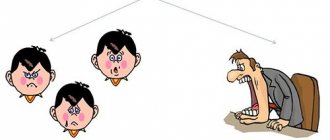The realities of our lives are such that stress awaits us at every turn. The constantly accelerating rhythm of life, information flows, everyday and work problems - all this leads to increased excitability, nervousness and, as a result, insomnia and loss of strength. And here, soothing tea will be an indispensable assistant, which will help relieve tension, get rid of irritability, and improve sleep.
When should you drink soothing tea?
Stressful situations affect the psycho-emotional state, often causing sleep disorders. It is not always possible to cope with this on your own. Often people go to the pharmacy and buy themselves sedatives or sleeping pills. In many cases, teas that calm the nervous system will help cope with the problem.
Herbal tea is a drink that consists of a complex of natural herbs with a pronounced sedative effect. They have a gentle effect on the body, are drunk like a regular drink, taking into account certain conditions, and do not at all resemble medicine.
You can drink this soothing tea throughout the day or before bed.
Indications for the use of herbal tea are:
- unfavorable emotional state;
- increased fatigue;
- nervous tension;
- increased nervous excitability;
- insomnia or restless sleep;
- minor disorders of the cardiovascular system (as part of complex treatment);
- busy lifestyle;
- increased anxiety.
Recommendations for use
Calming herbs for the adult nervous system can be taken by people with the following problems:
- for nervousness;
- with intestinal problems;
- with neurasthenia;
- with heart disease;
- with disturbed sleep;
- in the first stages of hypertension.
People who have a mild degree of neurosis are recommended to drink a chamomile decoction. Melissa and mint will help with poor sleep. If you experience severe insomnia, you need to drink hop cones and valerian. When a person is hysterical and cries a lot, a decoction of motherwort will help. You should not start taking sedatives for nerves every day without consulting a doctor, because there are conditions for use and a certain period that allows you to take herbs every day, after which you need to take a break. The plant can have a bad effect on the human nervous system.
Lavender has a sedative effect
Characteristics of Various Soothing Herbs
Nature has rewarded us with plants that contain substances that reduce excitability. Calming herbs are a great way to relieve tension and irritation.
The most commonly used medicinal plants are:
- Hawthorn – has a good calming effect, relieves excitability of the central nervous system, and also has a hypotensive and cardiotonic effect.
- Oregano is a herb with a pronounced sedative effect.
- Lavender - the components contained in the plant regulate the activity of the nervous system, relieve fatigue and headaches, and promote healthy sleep. Most often used in the form of essential oil, raw material for filling aroma pillows.
- Motherwort – normalizes the functioning of the central nervous system, reduces blood pressure, and has a cardiotonic effect.
- Valerian is one of the most popular herbs for reducing the excitability of the central nervous system. It also has a mild antispasmodic effect.
- Mint – used in cooking and folk medicine. It has an anti-inflammatory, soothing, tonic and choleretic effect.
- Melissa - used as a medicinal herb, it relaxes well, helps with insomnia, relieves irritability and spasms.
- St. John's wort has a sedative effect, also relieves inflammation, and promotes tissue regeneration.
- Chamomile is the most common medicinal plant. In addition to the calming effect, it also has anti-inflammatory, antispasmodic, and regenerative properties. Positively affects the functioning of the digestive system. Chamomile is considered a universal remedy, suitable for people of different age groups.
- Hops – strengthens the cardiovascular system, has an antispasmodic, calming effect. Effective for neuroses, insomnia, nervous exhaustion, tachycardia, vegetative-vascular dystonia.
- Thyme – relieves inflammation and spasms, has an antiseptic, mild analgesic and hypnotic effect. Used for colds, insomnia, neuroses, and digestive tract disorders.
In combination, the herbs have a more pronounced effect. This drink can be used as a sedative for mental and nervous stress, emotional excitement and irritability.
The following combinations are often found in sedative pharmaceuticals:
- valerian, lemon balm, mint;
- valerian, motherwort, hawthorn;
- lemon balm, mint, hops.
4. Passionflower
Passionflower (other names: “cavalier star”, “passion flower”) actively affects our central nervous system and has a relaxing effect on the muscles. She fights anxiety, insomnia, nervous fatigue, neuroses, asthenia, and nervous overexcitation. Passionflower is a mild natural tranquilizer. It quickly calms the nervous system and helps the body normalize its activity.
Thanks to this medicinal plant, headaches, cramps during menstruation and pain that appeared due to nervousness disappear without a trace. Passionflower also helps to get rid of painful sensations in the neck that appear due to incorrect posture. She struggles with irritability and bad mood.
Passionflower contains saponins, amino acids, pectin, ascorbic acid, potassium, tannins, etc.
SeedrPlayer({ debug: true, container: 'div', gid: "5f7edd9633cb322a471f7548", onError: function (e) { console.log(e); } });
If you want to make sedative passionflower tea, then you need to pour 1 teaspoon of the raw material into 150 ml of boiling water. The drink is infused for 15 minutes, then filtered through cheesecloth or a special strainer and drunk warm. The tea should be taken immediately before bed, as it has a pronounced sedative effect.
What do you need to know?
When purchasing ready-made herbal tea, it is important to pay attention to the composition. It is desirable that there are no artificial colors or flavors. Contraindications and restrictions for use are: hypersensitivity to the components of the collection, clinical depression, which is accompanied by suppression of the activity of the central nervous system.
During the systematic use of herbal teas, you must adhere to the following recommendations:
- Avoid drinking alcohol and minimize coffee consumption.
- Exercise caution when driving.
- It should be remembered that some herbs with a calming effect enhance the effect of sleeping pills and sedatives, analgesics and alcohol.
- Do not exceed the dosage per day - the optimal daily dosage is 200-250 ml. Abuse of herbal drinks can lead to drowsiness, decreased physical and mental activity, and dizziness.
- Calming teas are a kind of medicine. Therefore, they must be taken in a course with a mandatory two-week break.
- For greater effect, drink herbal tea not hot, but warm.
- During pregnancy and lactation, consultation with a doctor is necessary.
Sleeping pills and sedative teas are not a panacea for nervous disorders, severe forms of insomnia, or clinical depression. This is only an auxiliary means for maintaining the nervous system of an adult in good shape. In other cases, medication may be required.
We advise you to read: Cherry leaf tea (fermented): benefits for the body
Important Tips
Whatever medicinal tea you choose, you need to know the basic rules thanks to which the herbal tea will have a calming effect.
Rule 1: you need to take a soothing drink at the same time, without interruption - if the problem is pronounced. If an adult or child periodically, inconsistently has problems, has periodic outbursts of anger, irritability, then you can drink tea once, occasionally.
Rule 2: You can drink tea for no longer than 1 month. Then you definitely need to take a break of 2 weeks.
Rule 3: if a person’s psycho-emotional state has returned to normal, then there is no need to continue drinking soothing tea, as if to consolidate the results of treatment.
Rule 4: the composition of tea should change. You should not take the same sedative for more than six months, so as not to cause an addictive effect.
Rule 5: you need to take herbal tea for insomnia 1-2 hours before bedtime, no later; for irritability - immediately before bedtime.
Rule 6: you need to start taking soothing tea with small doses.
Effect on the body
Calming herbs are sedative and relieve aggression and irritability.
They can increase inhibition in the nervous system, and also remove heavy sweating, reduce trembling of the hands and legs, and slow the heart rate. A person’s sleep returns to normal, falling asleep becomes easier and faster. We will consider the most famous herbs with a calming effect below.
- St. John's wort relieves anxiety and removes the feeling of fear.
- Oregano helps a person quickly calm down, but is prohibited during pregnancy.
- Chamomile – has a positive effect on the nervous system. Take it during pregnancy and for diarrhea only after consulting a doctor.
- Motherwort has a stronger effect than valerian, so this plant should be used with caution. It should not be taken if a person has a slow heart rate and low blood pressure.
- Icelandic moss also heals nerves. It contains quite a lot of healing components, so it is often used to treat various diseases, including stress.
- Blackberry is a calming herb for sleep. Relieves feelings of anxiety, tension and lifts a person’s mood. Wormwood also normalizes sleep. It helps eliminate hysterical attacks in a person.
- Valerian copes with anxiety. If the dosage is exceeded, the plant can have the opposite effect: the person will become agitated, aggressive and nervous.
- Mint helps you sleep well. People with high blood pressure are contraindicated to drink it.
- Linden and lemon balm remove tension and irritability. Pregnant women should not drink lemon balm.
- Angustifolia fireweed calms a person, improves sleep and relieves headaches.
- Ivan tea and creeping thyme have the same effect.
Herbs with a calming effect
It is worth knowing that sedatives from plants do not help immediately, to see the result, they need to be taken several times every day.
The best recipe for adults
Mature and elderly people (mostly men) are most susceptible to insomnia, and most often they resort to sleeping pills. However, herbal tea for a restful sleep for an adult will help get rid of annoying insomnia. The most popular are the following types of natural raw materials for making the drink.
Chamomile flowers. In the form of dried herbs or ready-made filter bags, it helps restore the nervous system, eliminate anxiety, panic conditions, normalize sleep, and get rid of headaches. Contains apigenin, which has a beneficial effect on the central nervous system.
Mint. As a monocomponent or additive to tea, it soothes and relieves emotional and physical stress. Thanks to the menthol contained in the plant, mint tea helps to relax the body and help you fall asleep quickly.
Melissa. Mint's cousin has a milder taste and less pronounced aroma. Helps get rid of irritation, fear, fatigue, and feelings of weakness. Promotes easy sleep and deep rest. To achieve a quick effect, it is recommended to brew the herb in its pure form, and not use it as an additive to black or green tea.
Hop cones. The infusion helps you fall asleep quickly, without problems, and sleep soundly without waking up. Prepared at home, based on the following proportion: 2 teaspoons per glass of boiling water. Stir, cover with a lid, leave for 3-4 hours.
When using medicinal preparations, you should remember that herbal tea should not be drunk hot.
Healthy lifestyle
This herbal soothing tea recipe is something you should always have on hand.
Herbal soothing tea will help cope with insomnia, anxiety, irritability and nervousness, perfectly tones and relieves stress. Another significant advantage of this tea is that herbal soothing tea does not contain caffeine, it can be drunk before bed, and is harmless for people suffering from high blood pressure. There are many recipes for soothing teas, but their main components are medicinal plants with a pronounced sedative effect: oregano, thyme, lavender, mint, chamomile, jasmine, lemon balm, fireweed, linden flowers, currant leaves. These plants can relieve headaches, relieve nervous tension and relax muscles, improve mood and sleep.
Calming herbal tea for nervous agitation
Mixture: 2 tsp. mint leaves, 2 tsp. water trefoil leaves, 1 tsp. hop heads and 1 tsp. valerian rhizomes. Mix, 2 tbsp. pour 2 cups of boiling water over the mixture. The tea should steep for 20 minutes, after which it should be strained. Take ½ glass two times a day. In case of insomnia, take before bed.
Soothing tea for headache relief
Mixture: 4 parts valerian root, 3 parts mint leaves, 2 parts fennel fruits, 1 part chamomile flowers, 1 part lily of the valley flowers. Preparation: 1 tsp. pour 1 cup of boiling water over the mixture, let it brew for 2 hours (in a thermos), strain. Drink 1 glass throughout the day.
We advise you to read: Tea with cloves: recipes, benefits for the body
Soothing herbal tea for nervous disorders
Mixture: 3 parts motherwort (herb), 3 parts marsh cudweed (herb), 3 parts hawthorn flowers, 1 part chamomile flowers. Preparation: 1 tbsp. pour 1 cup of boiling water over the mixture, let it brew for 8 hours (in a thermos), strain. Drink ½ glass 3 times a day an hour after meals.
Soothing tea made from dried hawthorn fruits
1 tbsp. pour dried hawthorn fruits with 1 glass of boiling water, let it brew for 2 hours, strain. Take 1–2 tsp. in the morning and at lunch - before meals, and in the evening - before bed.
Calms the nervous system and helps cope with dizziness.
Calming herbal tea for insomnia
Mixture: 9 g chamomile flowers, 6 g valerian root, 15 caraway fruits. Grind and pour ½ liter of boiling water. Let it brew for 20 minutes. Take ½ glass on an empty stomach in the morning and evening before bed for 2 weeks.
Calming tea for irritability and nervousness
Mixture: 2 parts St. John's wort (herb), 1 part lemon balm leaves, 1 part lavender flowers, 1 part orange leaves. 3 tbsp. pour 1 liter of boiling water over the crushed mixture, leave in a thermos for 3 hours, strain. Take 1 glass 4 times a day for a month.
Chamomile herbal tea
This is the most famous herbal tea in the world. German chamomile is believed to be especially useful in the fight against insomnia. To make tea, you need to boil water, add chamomile and let it brew for a few minutes. You can then add the remaining ingredients and strain the mixture into a cup. You can add honey to your tea to make the taste more pleasant.
Benefits of Chamomile Herbal Tea
- induces sleep
- relieves migraines
- will increase immunity
- relieves stress
Ingredients
- two cups of clean drinking water
- two tablespoons of dry chamomile or 2 sachets of chamomile
- 1/4 teaspoon turmeric
- ginger and cinnamon
- tablespoon natural honey
Tea with valerian
This tea has been used since ancient times as a common sleep aid. Valerian repairs brain cells by producing more gamma-aminobutyric acid (GABA), a chemical responsible for calming nerves and relieving anxiety. Place a teaspoon of valerian root in a cup. Pour boiling water and leave the tea for 30 minutes to cool. Don't forget to pass it through a strainer.
Benefits of Valerian Tea
- treats insomnia and sleep problems
- relieves anxiety and depression
- helps with hyperactivity
- relieve headaches
Ingredients
- teaspoon valerian root
- glass of boiling water
- honey and lemon optional
Tea with lemon balm
This tea is one of the most powerful natural sedative drinks for sleep. When combined with other herbs such as chamomile, mint and valerian, it works better than any synthetic sleeping pills. At the same time, it is safer than the latter. Bring the water to a boil. Add lemon balm leaves to the saucepan. Pour boiling water and cover with a lid. Let the tea steep throughout the day.
Benefits of lemon balm tea
- normalizes sleep
- relieves stress and anxiety
- will improve your mood
- strengthens memory
- relieve muscle pain
Ingredients
- 4 cups boiling water
- 20 fresh leaves or 1 tablespoon dried lemon balm leaves
Mint will relieve tension
The spicy “chill”, menthol, which peppermint leaves are rich in, resists many ailments. The plant is usually placed in freshly brewed tea. A small dose of mint will relieve anxiety and improve sleep.
By brewing more leaves, you, on the contrary, will noticeably perk up and be ready to “rush to the barricades” - strong mint tea perfectly tones and adds courage. When hot, mint infusion is a balm for the cardiovascular system and a wonderful diaphoretic. When cooled, the cooling, slightly hot taste of the drink will refresh and improve metabolism.
Preparing the infusion is simple: brew fresh or dried leaves (1 spoon) with 150 milliliters of boiling water. After 10-20 minutes you can enjoy aromatic tea.
Tea for children's relaxation
In the modern world, a child is also subject to negative influences and suffers from sleep disorders. Nightmarish dreams are constant companions of the night's rest. Today, manufacturers offer a huge range of children's products that help stabilize their nervous system. These are single or multi-component preparations based on medicinal plants.
Calming tea for restless children before bed can be purchased in the form of convenient filter bags or dried raw materials for brewing. When purchasing a product, you should pay attention to its composition. The table shows which herbs can be used to expand the range of the “natural pharmacy” as children grow.
AgeName of plants and permitted products
| 0-4 months | Fennel tea |
| 4 months - 1 year | + chamomile tea |
| 1-2 years | + motherwort, lemon balm, sage |
| 3-5 years | + valerian and thyme |
| 6-7 years | + linden blossom and honey |
We advise you to read: Rooibos herbal tea: beneficial properties, contraindications and brewing rules
You can make herbal infusions yourself, but it is better to purchase them ready-made.
Calming charges for children
Mothers often ask what decoctions can be used to treat restless babies. It is recommended to consult with a specialist in order to achieve effective results and not harm the child’s body.
Here are some of them:
- chamomile flowers and honey;
- mint, hop cones, valerian root;
- lemon balm with chamomile flowers;
- fennel with mint and chamomile.
Children's bodies are more sensitive to herbs; use them only on the recommendation of a pediatrician.
Roots and fruits
It seems that our ancestors experimentally brewed everything as soon as they realized that this could be done. And in addition to herbs, flowers, leaves of various shrubs, roots and fruits were also used - mostly berries, but not rarely fruits. And all parts of plants contain something. Among fruits and berries, apples, currants, cranberries, lingonberries, rose hips, blueberries, plums and rowan are most often added to herbs. And from the roots, these are usually the roots of dandelion, burdock and ginseng.
Side effects
Despite the fact that teas have many positive qualities, they also have side effects. Any collection contains tannins that can cause individual intolerance in a person. They can also provoke an allergic reaction in humans.
Women who are pregnant are not recommended to use valerian and oregano, as these herbs can cause poor health. But tea is also not recommended for those who suffer from low blood pressure and weak heartbeat. You should not combine tea with tranquilizers and painkillers, as well as people who plan to drive.
The best option would be to take this drink before bed. This will help you go to sleep quickly and help cope with insomnia.
A large number of people who have used sedatives note the positive effects of herbs on the body. People who previously took sleeping pills were able to completely abandon them in favor of these teas.
Improved sleep and morning vigor are noted. The use of fees normalizes blood pressure. By drinking one cup of tea daily, there is a decrease in agitation and psychological stress. These herbs are also recommended as a preventive measure for insomnia.
Some people complain that the mixture, which contains St. John's wort and valerian, has a not very pleasant aroma. But if you compare this one drawback of tea with its many advantages, then it does not matter.
You should not ignore natural remedies for the prevention and treatment of various diseases and give preference to medications that can cause addiction.
All the plants described above are freely sold in any pharmacy. They come in the form of regular herbal teas, as well as in bags that are convenient to brew. Improving your mental state with the help of such training is a slow but sure relief from stress.
Lavender for relaxation
It is no coincidence that lavender is called the flower of peace. Its essential oil (5-6 drops) is usually added to an evening bath to relieve fatigue after a busy day. With “tense nerves” and increased anxiety, the infusion will help.
Brew five grams of flowers (dried or fresh) in a thermos with a liter of boiling water. Leave for no longer than 10 minutes and drink 100 ml in the morning and before bed.
Summarize
Many herbal teas, including chamomile, valerian root, and lavender, are marketed as sleep aids.
Many of the herbs they contain work by increasing or modifying certain neurotransmitters that are involved in sleep initiation.
Some may help you fall asleep faster, reduce nighttime awakenings, and improve your overall sleep quality. However, the evidence for their benefits in humans is often weak and inconsistent.
Additionally, most modern studies have used these herbs in extract or supplement form rather than the herbal tea itself.
Given that herbal supplements and extracts are very concentrated, a diluted source such as tea will likely be less effective.
Further studies involving larger sample sizes are needed to fully understand the ability of herbal teas to improve sleep over the long term.
Additionally, since many herbs and supplements can interact with both prescription and over-the-counter medications, always consult your doctor before adding herbal tea to your diet.
While results may vary depending on the individual, these herbal teas may be worth a try for those looking to get a better night's sleep.
Sources
- https://NeuroDoc.ru/lekarstva/uspokaivayushhij-chaj.html
- https://ChayExpert.ru/chay/chaj-uspokaivayushhij.html
- https://znatoksna.ru/obzory/medicamenty/chaj-dlya-sna.html
- https://www.epochtimes.com.ua/ru/narodnaya-meditsina/prostye-recepty-travyanyh-uspokoytelnyh-chayov-114057
- https://notagram.ru/kakoj-travyanoj-chaj-pit-pered-snom-ot-bessonnitsy/
- https://2tea.pro/polza-i-vred/son-i-spokoystvie/uspokaivayuschiy-chay-pered-snom/
- https://www.magicworld.su/zdorove/1161-uspokaivayushchiy-chay-pered-snom.html
[collapse]
Fees
A calming herbal collection can consist of many plants.
- 2 parts each of mint and shamrock leaves, 1 part valerian and hop cones. The components are mixed, after which take 2 tbsp. l. prepared mixture and pour boiled water over it. Infuse the broth for 30 minutes and then filter. Collecting herbs calms a person, relieves nervousness and improves sleep.
- The second option for collecting herbs includes mint, valerian and skullcap. All plants are taken in equal doses and mixed. Then 2 tbsp. l. pour hot water and infuse for 25–30 minutes. Then the broth is filtered and becomes ready for use. This collection of herbs has a positive effect and normalizes sleep.
- For the third option, you need to take 3 parts of valerian, the same amount of mint leaves and 4 parts of the trefoil plant. The plants are mixed, 2 tbsp are taken. l. and pour 400 ml of boiling water into the mixture. Infuse the decoction for half an hour and then filter. The collection calms well, removes hot temper and normalizes sleep.
- The fourth option includes valerian roots, motherwort leaves, fennel berries and thyme fruits. The grass is divided into equal parts and mixed. Select 2 tbsp. l. and pour 400 ml of boiling water. The broth is allowed to cool and only then filtered. The medicine relieves nervousness well and restores the emotional state.
- For the next option you need 2 parts valerian, 3 parts chamomile flowers and 5 parts thyme berries. Mix everything and take 2 tbsp. l., pour 400 ml of boiling water into the mixture. The broth is infused for 30 minutes and then filtered. The drink helps normalize sleep, relieves severe nervousness and anxiety.
Calming herbal tea No. 1
The herbal remedy is available in a pack or in filter bags; inside there is a soothing dry herb in crushed form.
The process of preparing a soothing herbal infusion is very simple, just fill the filter bags with water and let it brew. Composition, indications and contraindications
This collection includes several components: mint leaves, St. John's wort, valerian roots, chamomile flowers, lemon balm herb, and hop cones. The herbal medicine is characterized by a pronounced sedative effect, it is recommended to take it to normalize sleep and eliminate excessive nervous excitability. When using the infusion, it is possible to relieve spasms and get rid of increased gas formation in the intestines. Herbs have a gentle effect on the digestive tract and can eliminate intestinal colic.
It is not recommended to take the herbal collection if:
- Manifestations of allergies to phytocomponents
- The presence of intolerance to the herbs included in the collection.
The collection is not intended to be used to treat children under 3 years of age.
If the herbal medicine is taken incorrectly, side symptoms may occur:
- Sharp jump in blood pressure
- Increased sleepiness
- Decreased speed of psychomotor reactions
- The appearance of dizziness.
Features of application
To make a sedative, you will need to take a deep enamel container and pour 3 tbsp into it. spoons of herbal remedy (if the collection is not packaged in filter bags). Fill everything with boiling water (about 350 ml). Heat the resulting mixture in a water bath; this process will take about 10 minutes. When the liquid boils, remove the container with the broth from the heat, then let it brew for half an hour. After this, it is worth carrying out the filtering procedure. It is worth noting that the cake can be reused; fill it with boiling water again.
Soothing baths
It is customary to add essential oil while taking soothing baths. For a whole bath you need to add 3 drops of oil - this amount will be enough. The water should be warm, not hot. The procedure should last no more than 15 minutes.
You can brew a collection of herbal decoction, but first strain it. To do this, take linden, oregano, and motherwort in equal parts and mix thoroughly. 1 tbsp. l. pour 1 liter of hot water, leave for 2 hours, filter and add to the bath.
Bath with soothing herbs
To soothe skin tone, add citrus oil to the bath. You can cook it yourself. To do this, take 1 lemon, 1 tbsp. l. olive oil. Cut the fruits into small slices and pour boiling water over them for 2 hours. Oil is added to the mixture and then everything is poured into the bath. This bath should take approximately 20 minutes.











